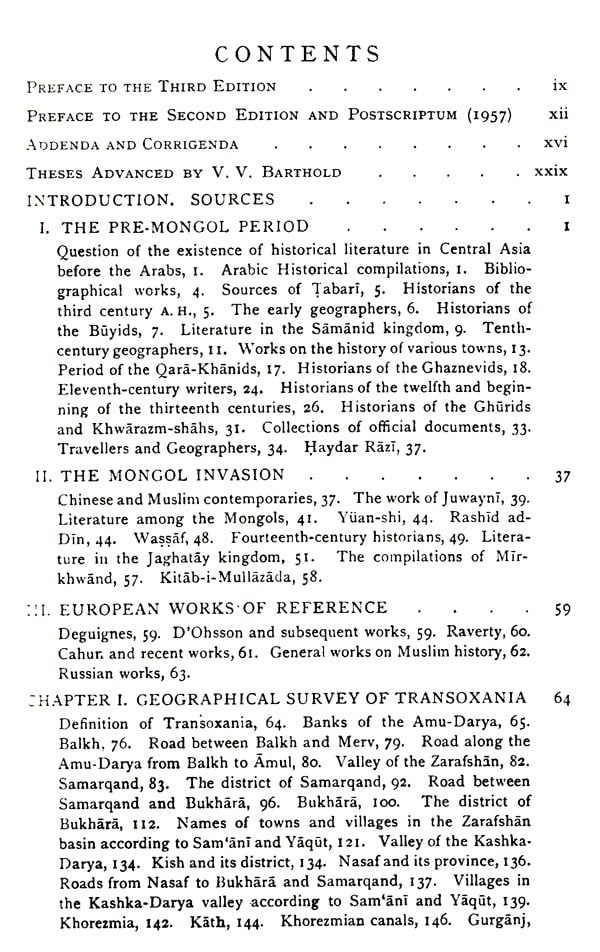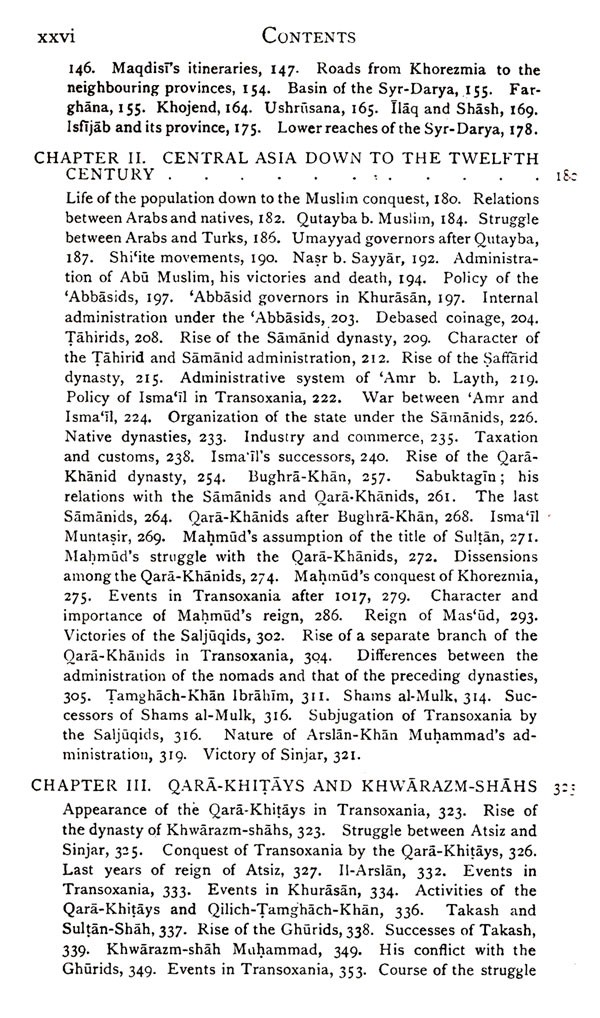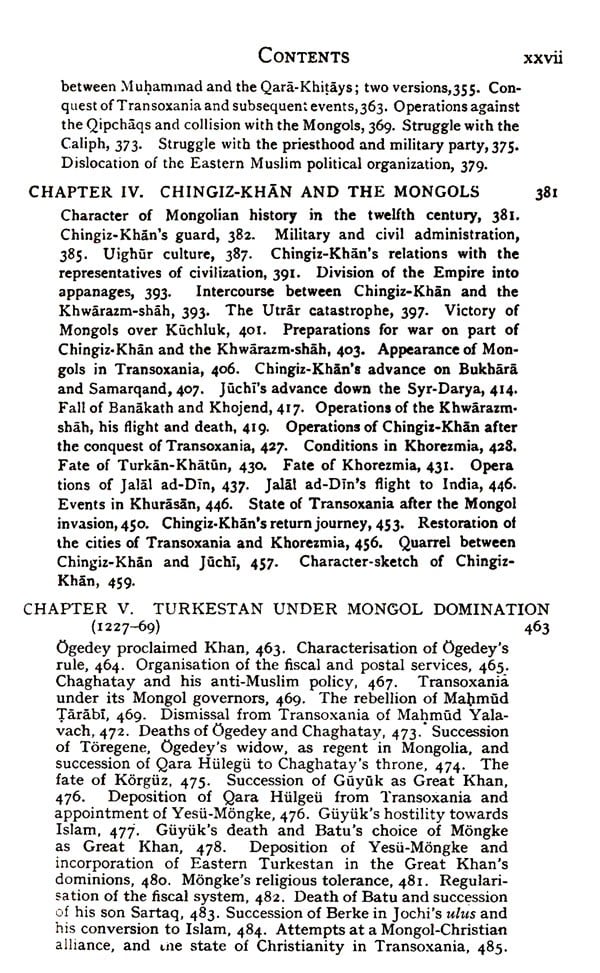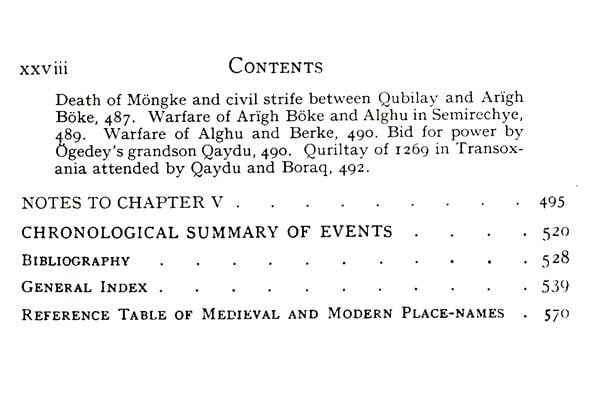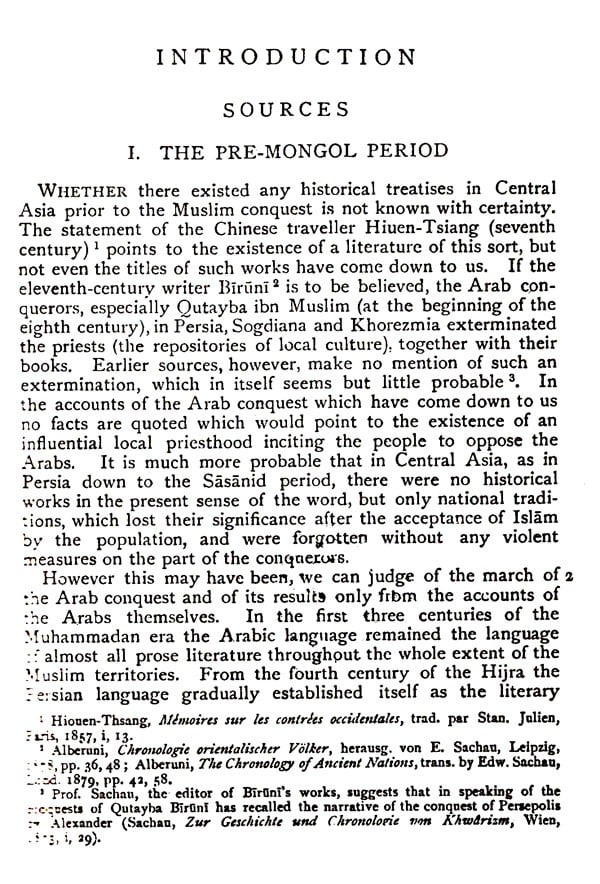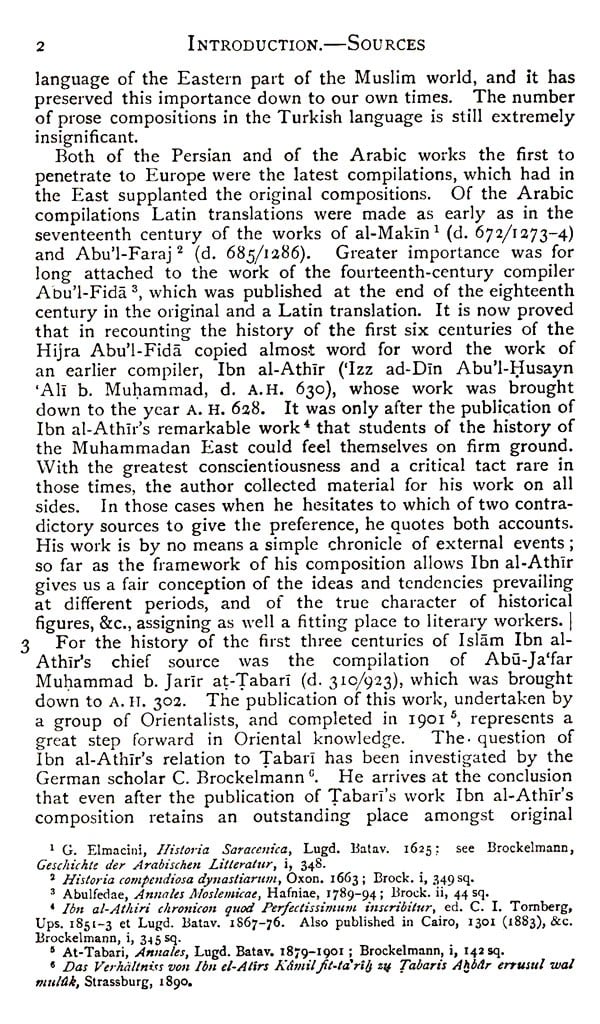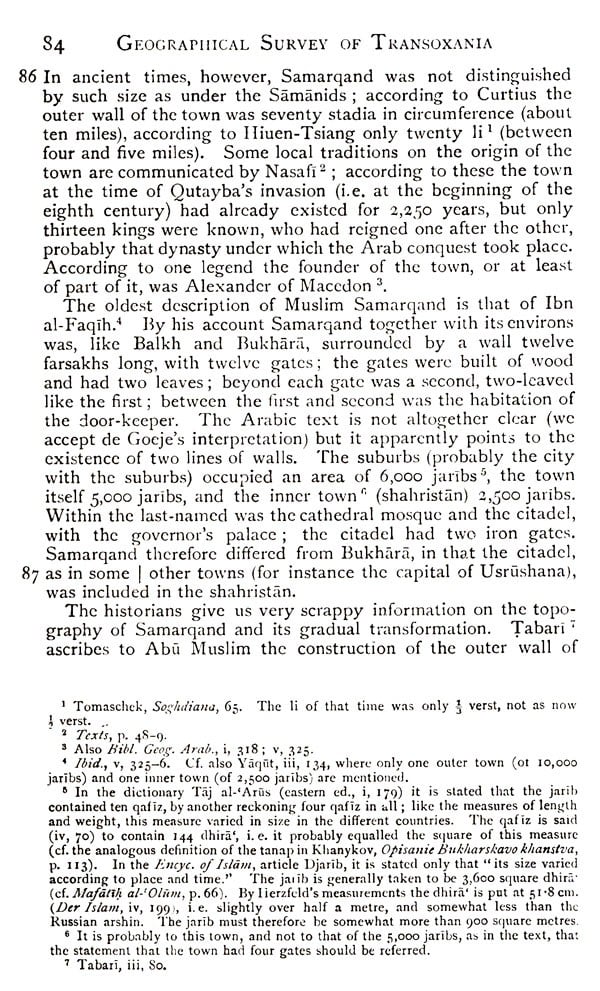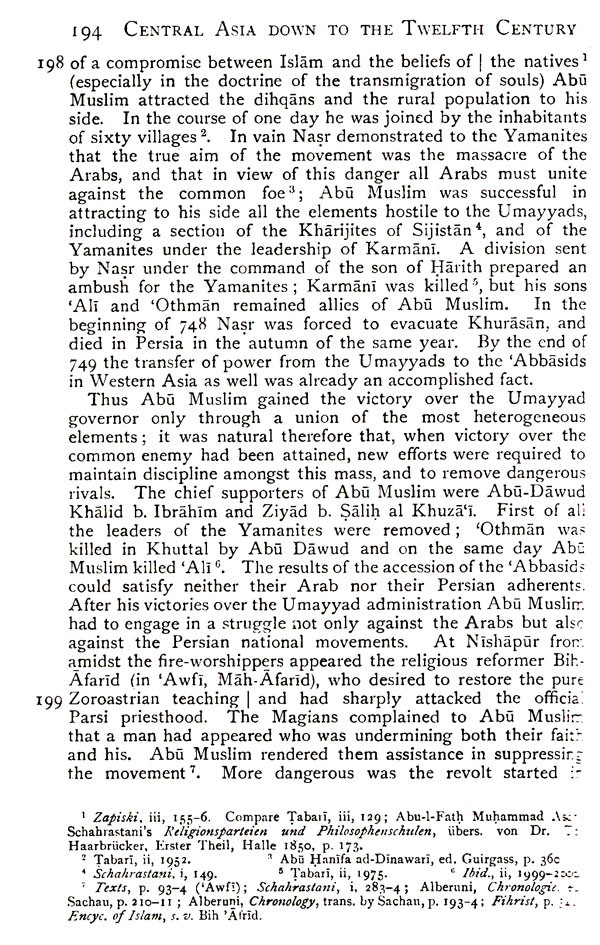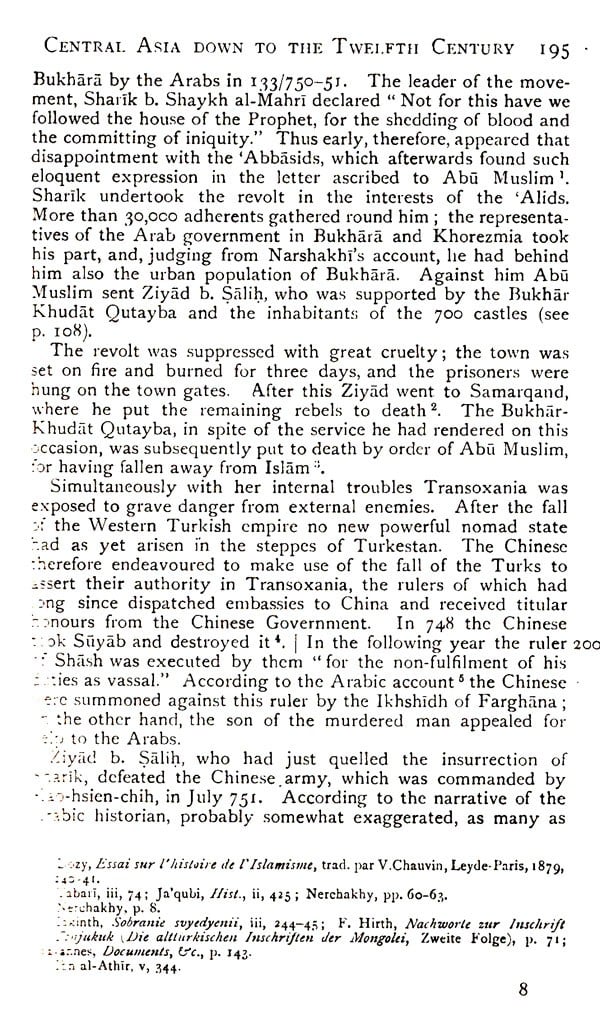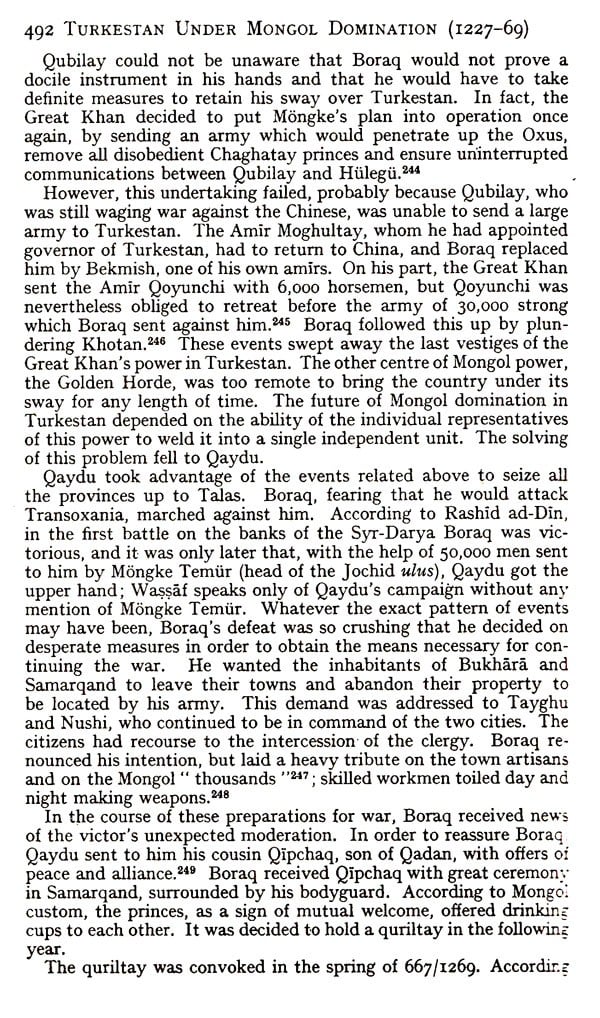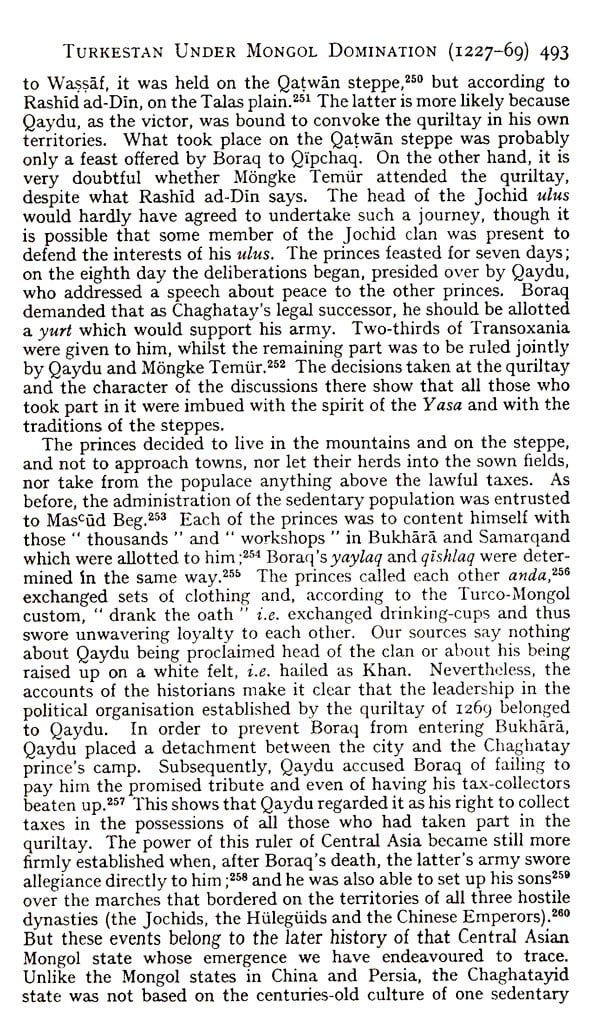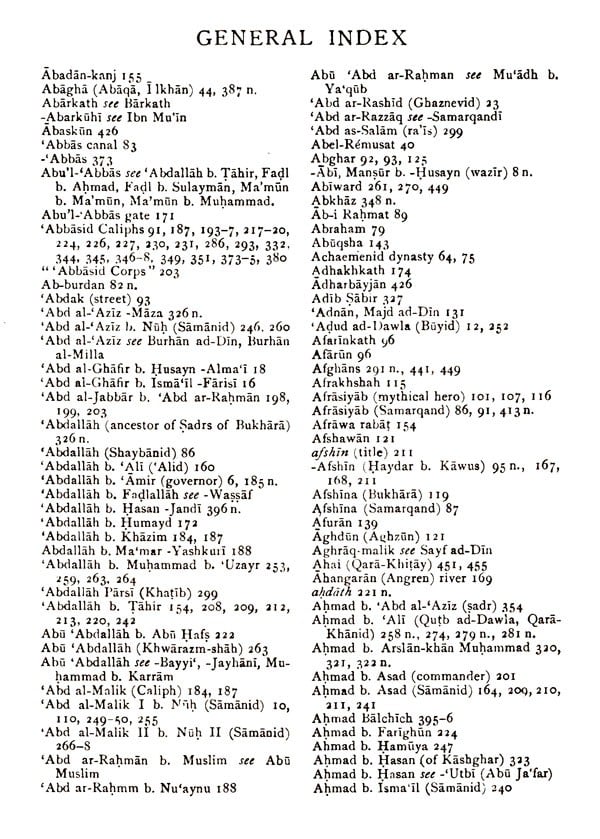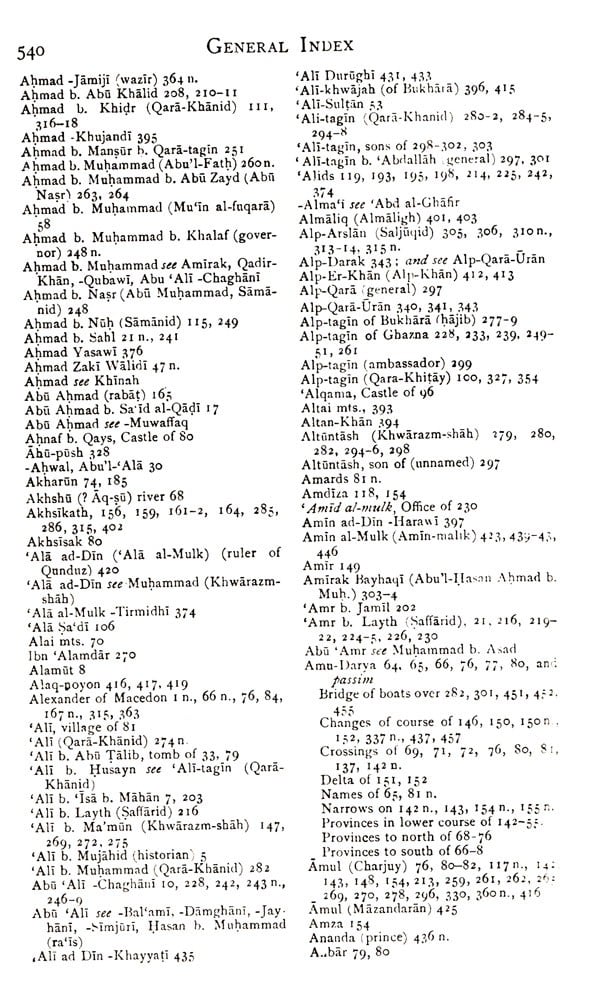
Turkestan (Down to the Mongol Invasion)
Book Specification
| Item Code: | AZB545 |
| Author: | W Barthold |
| Publisher: | Munshiram Manoharlal Publishers Pvt. Ltd. |
| Language: | English |
| Edition: | 2020 |
| ISBN: | 9788121505444 |
| Pages: | 612 |
| Cover: | HARDCOVER |
| Other Details | 8.70 x 5.70 inches |
| Weight | 764 gm |
Book Description
The present work is the history of Central Asia from the period of first invasion by the arms of Islam in 683 to the formation of · independent Charghatay Khanate in 1269.
This work originally appeared in 1900 as Turkestan at the time of Mongol Invasion in Russian. The present edition is a reissue of 1968 edition which has besides the translation of original Russian text also a posthumous paper of Barthold covering Central Asia between 1227 and 1269.
This work remains unrivaled in its breadth of treatment and mastery of abstruse detail.
Wilhelm Barthold (15 November1869--19 August 1930) was a Russian Empire and Soviet historian of German descent who specialized in the history of Islam and the Turkic peoples (Turkology).
In the two volumes of his dissertation (Turkestan down to the Mongol Invasion, 1898– 1900), he pointed out the many benefits the Muslim world derived from Mongol rule after the initial conquests. Bartold was the first to publish obscure information from the early Arab historians on Kievan Rus'. In 1913, he was elected to the Russian Academy of Sciences.
THE fact that a third edition of Barthold's Turkestan has been
called for indicates the permanent value of the work, unsurpassed after nearly seventy years in its breadth of treatment and mastery of abstruse detail. The task of preparing a new edition was originally entrusted by the Gibb Memorial Trustees to the late Professor V. Minorsky, whose own vast knowledge of the Iranian world aptly complemented Barthold's special field of Central Asia. Professor Minorsky's own death unhappily supervened before he could take the work in hand, and the Trustees then conveyed the task to myself.
Barthold's rigorous standards of scholarship, and his steadfast refusal to bend these canons to the exigencies of politics and ideology, did not commend him to the Soviet authorities. Barthold's greatness as a scholar could not be gainsaid, nor could his firm Russian patriotism, but his works became increasingly hard to find in Russia, and the results of his researches were only cited in a selective and often tendentious way. In the post-Stalinist era, the pendulum has swung, and Barthold has become, in the view of Soviet ideologists, ready for rehabilitation. In 1963 there began in Moscow publication of the whole collected corpus of Barthold's works, a praiseworthy project which will make available many studies which, for western specialists at least, have been largely inaccessible in the West. A Russian version of the 1928 English version of Turkestan has formed the first volume of this project, and it has been ably edited by the prominent orientalist I. P. Petrushevskiy.
A particular point of interest here is that an additional chapter by Barthold, absent from both the 1900 Russian original and the 1928 English version, is included in the new Moscow volume. The discovery amongst Barthold's posthumous papers of this long chapter was, according to the note by Professor Minorsky prefixed to the 1958 English reprint of Turkestan, announced in Moscow News of 28 April 1941. It covers the events in Central Asia between the death of Chingiz Khan in 1227 and the formation of the independent Chaghatay Khanate in 1269, and in the 1963 Moscow volume it comprises, with its extensive notes, pp. 531-84. Mrs. T. Minorsky prepared an English translation of this chapter; this has been edited by myself, and is now here printed and made available to the English-speaking world for the first time. It should be noted that the Russian editor of Turkestan has supplied further notes, and in some cases corrections, to Barthold's text; these are placed in square brackets. I have myself made some further additions here; these are also placed in square brackets, but are marked with the initials “ C.E.B.” My colleague, Professor J. A. Boyle, kindly read through the chapter and elucidated many of those Mongol personal names whose correct form was not known to Barthold or to the Russian editor; certain of his notes have been inserted, again in square brackets and with the intials “ J.A.B.”
**Contents and Sample Pages**
